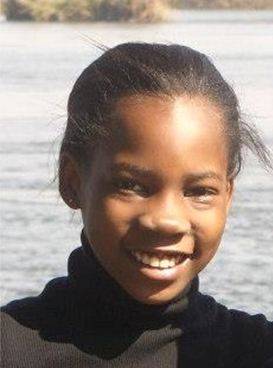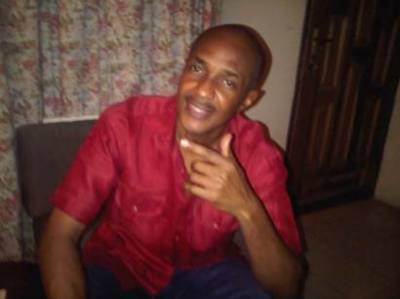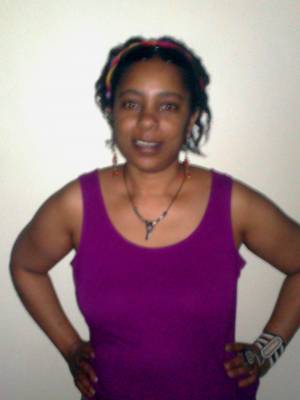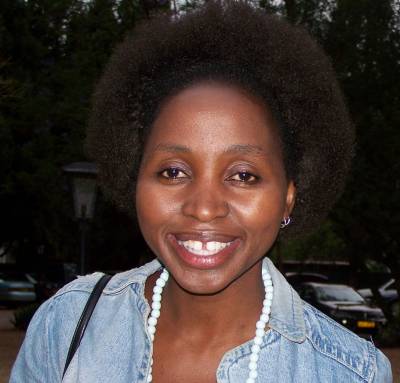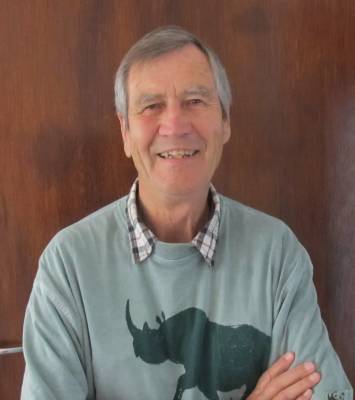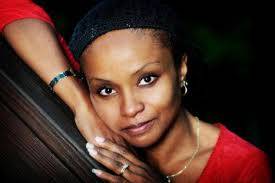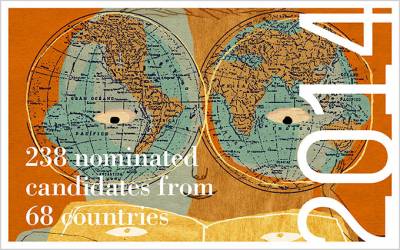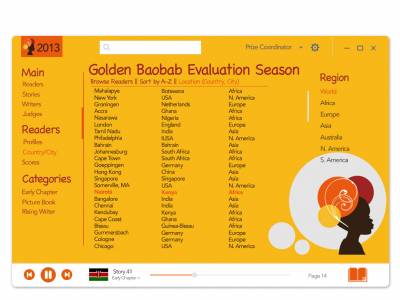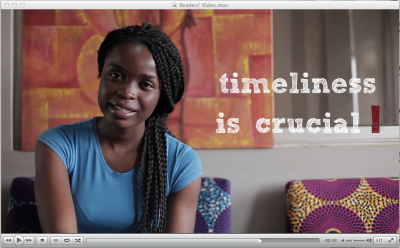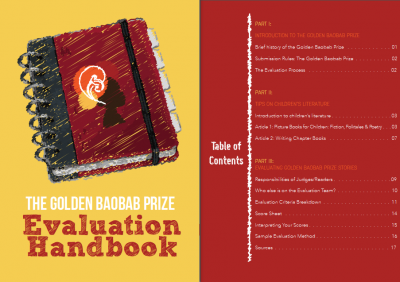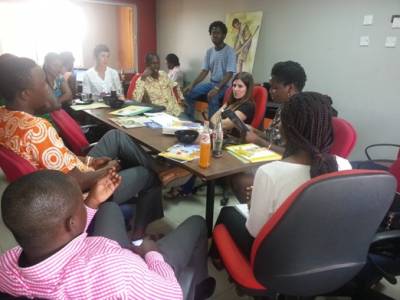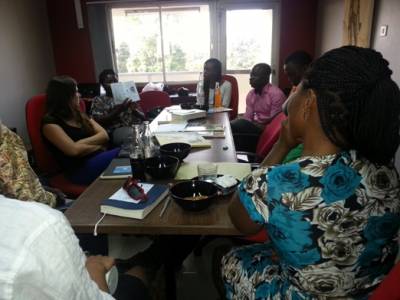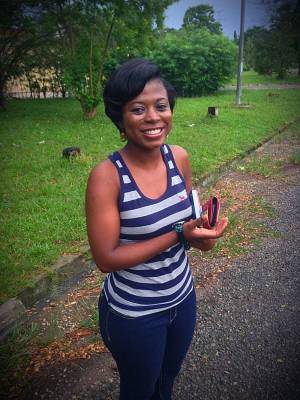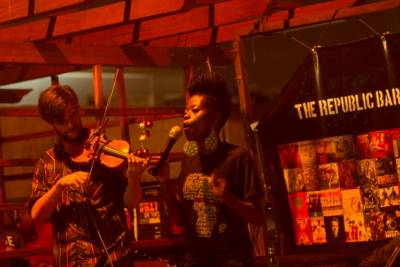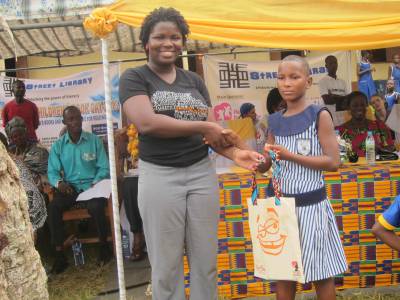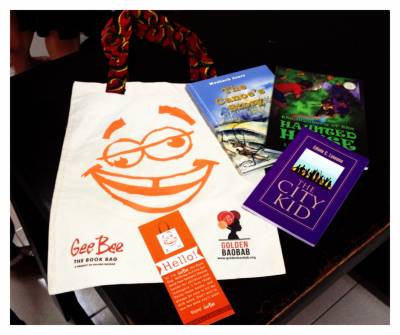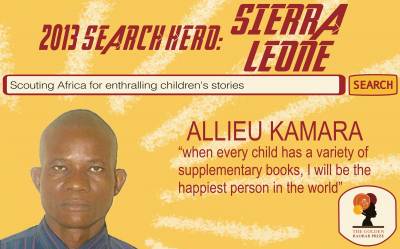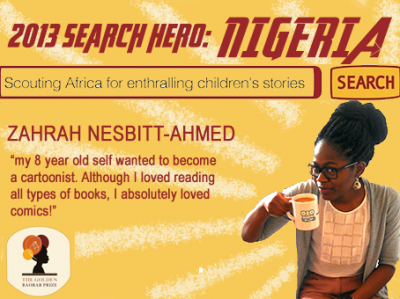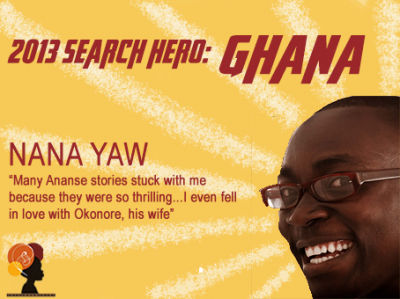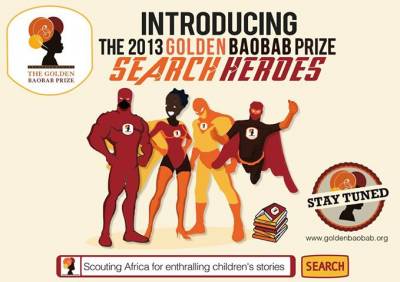The 2013 Golden Baobab Prizes Longlist
Longlist for the Picture Book Prize
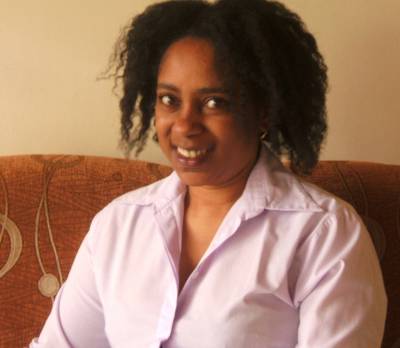
GRANDMA MIMO’S BREAKFAST by Carol Gachiengo (Kenya)
Mimo is a very old but really fun, self-sufficient grandma with a great attitude. She has a little kitchen garden, some chickens and a goat. She’s got all she needs to take care of herself, but she’s having a bit of a rough morning. Her animals seem to have gone on strike, and she’s very hungry. Can she get them to give her the eggs and milk she needs for her breakfast?
Carol Gachiengo is a journalist and lawyer who lives in Nairobi, Kenya. She remembers, as though it were yesterday, the first book she read as a child. “It was like discovering magic and time travel all at the same time,” she recalls. “Writing for children is incredibly fulfilling because it allows me to unleash a greater level of creativity and just have fun with it. It’s also an opportunity to bring a little magic into a child’s life.”
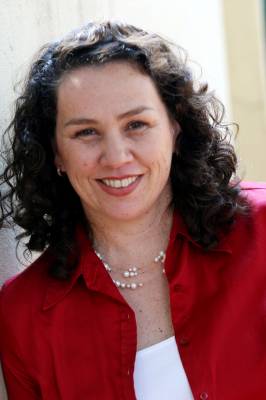
DAD GOES TO SCHOOL by Mandy Collins (South Africa)
One day when Nandi’s dad drops her off at school, she feels lonely and asks him to stay. To her surprise, he promises to stay the following day. It sounds like a lovely idea, but Dad has quite a difficult time at school, and gets himself into all kinds of trouble. Eventually Nandi realises that it’s not nearly as much fun having Dad at school with her and that she can manage quite fine by herself.
Mandy Collins is an award-winning South African journalist who has always had a passion for language and in particular, the multilingual environment of South Africa. Mandy is involved in many aspects of writing – not only does she continue to provide feature articles for consumer health and general publications, but she also teaches business writing at various large companies and NGOs, is an editor for a variety of writers from academics to novelists and non-fiction authors, and ghost-writes books for others. She also provides individualised writing coaching for children and adults. Mandy lives in Johannesburg, South Africa with her husband, two daughters aged 11 and 14, and two slightly demented dogs.
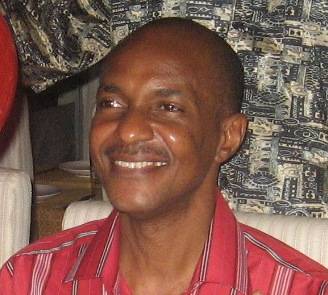
THE PRINCESS WITH A GOLDEN VOICE by Philip Begho (Nigeria)
A grateful kingdom allows a princess to become the first female monarch of the land when her golden voice succeeds in enchanting a terrorizing monster cobra so that she can slay it.
THE TWO-HEADED MONSTER by Philip Begho
When a rampaging two-headed monster sets eyes on a so-called useless girl child, a spell is broken and the monster changes back into what it really is -- the young king of a neighbouring kingdom. The grateful king grants the land its long-sought desire -- all because of the girl child.
Philip Begho is an award-winning author who has published over a hundred books, including the critically acclaimed Jelly Baby (a novel about boy soldiers), Songbird (a young adults novel about career choice), and the blockbuster Penny for an Orphan. He has worked as a journalist, a lawyer, a banker and a university lecturer and has also engaged in film and theatrical production. But he is now a full-time writer, doing what he likes best, writing children's stories. When he is not writing, he engages in career coaching and teen counselling and finds time to run informal play-and-learn groups for children. His hobbies include swimming, walking, and playing lawn-tennis and badminton.
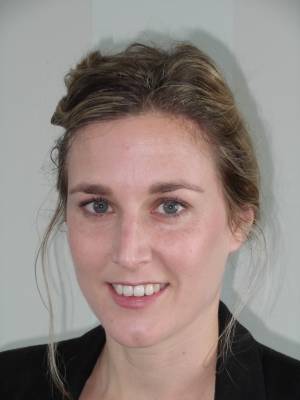
THE LITTLE HIPPO by Liza Esterhuyse (South Africa)
Faraway in the savannah a little hippo sighed. The rains were late and the hippo-pool was getting very crowded. Then he notices the wildebeest, zebras and antelope gathering for their annual migration and he decides to join them. However, the little hippo quickly realises that the journey is not as easy as he thought and that it’s filled with danger. Luckily, he meets friends along the way who help and guide him through the migration.
Liza Esterhuyse is a qualified occupational therapist who has a Masters Degree in Early Childhood Intervention. Liza is many things: a daydreamer, a book junkie, a red wine drinker, a world lover, a tree hugger, a dog enthusiast, a horse admirer and a Capetonian. She stumbles in high heels, can be bribed with coffee and Country Road and dreams of seeing the world and becoming a famous writer. Liza loves pretty photos and children’s books. She also likes to laugh and has a big heart for the children of Africa.
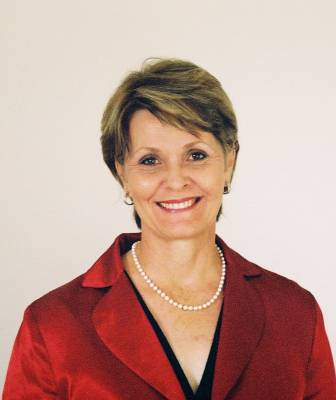
THE BUTTERFLY TREE by Regina Malan (South Africa)
Itumeleng was very special. He could see the shy forest nymph, Serurubele, who brought thousands of white butterflies and life-giving rain to the village. After four years of scorching drought the village people were overjoyed at the boy’s news that Serurubele and her delicate butterflies had arrived. They started ploughing and sowing and at night sang songs around the fire. Itumeleng was a happy boy.
Regina Malan is a born and bred South African. She grew up in the ‘platteland’ or countryside and as a child never even visited Johannesburg. After her university studies, however, after a short stint in Cape Town, she moved to Johannesburg and started work with a publishing company where she has been ever since. She appreciates the city’s energy and the array of options it offers for life’s enjoyment. Regina and her husband, Johan are the proud parents of two wonderful children. Her love for books and literature led her to do post-graduate studies in literature and she obtained a Ph.D. in this field. To this day words can suddenly jump up and enchant her. She earns her living as a freelance magazine journalist and as a translator and editor.
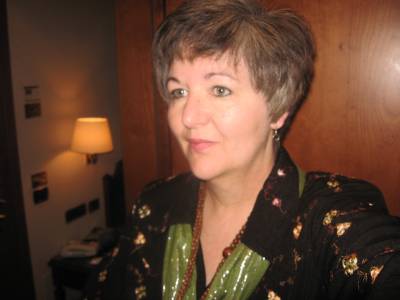
THUMISANG AND PULANE by Ansie Nel (South Africa)
Thumisang lives in the woodlands and he loves the animals. He is Pulane’s big brother and he feels responsible for her. When she is ill, his mother sends him for medicine and he runs to town to get medicine from the doctor. The naughty crow steals the letter and he and the go-away-bird make fun of the letter. Thumisang has to explain what’s wrong to the doctor himself. The wise old owl scolds the crow for being naughty and the go-away-bird decides to help Thumisang. When Thumisang comes back and he falls over a stone he nearly loses the medicine. The go-away-bird swoops down to save the medicine and all ends well. Thumisang takes the medicine home and Pulane can get better.
Ansie Nel is married with three children who became four when her son got married. Ansie and her husband stay on a farm in the Zeerust district which is about 90km from the Botswana border in the North West Province of South Africa. Ansie did bookkeeping for several years before she landed in the Zeerust library. That was when she found her real calling; she was a librarian for fourteen years in the local library. At the moment Ansie teaches Afrikaans and English at a Home Schooling Centre for a small number of children. She cannot picture her life without books or children.
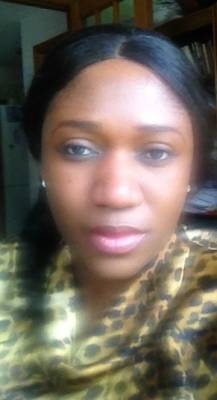
THE LITTLE YELLOW FROG by Ayibu Makolo (Nigeria)
This story is about a little frog who comes to know that people are not special because of their skin colours but because of who they are.
Ayibu Makolo writes stories that are humanistic and personal. She also writes humour. Ayibu Makolo is her pen name. She enjoys reading classics and travelling around the world. She presently lives in Scotland with her family but has lived in both Nigeria and the Netherlands. She speaks four languages fluently and two other languages passably. She has been writing since she was a child but only began to make her work public this year. Ayibu is also a medical doctor.
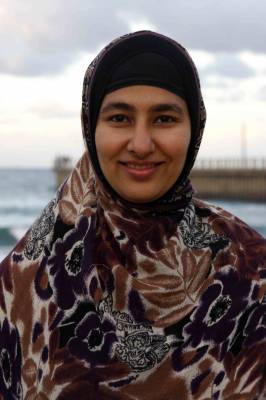
BIBO LEARNS TO SPEAK THE TRUTH by Nahida Esmail (Tanzania)
This story is based around the importance of speaking the truth. As Mark Twain said, “If you tell the truth, you don't have to remember anything.”
Bibo is a young and playful zebra who enjoys playing tricks on people. His mother, Lulu, does not like when Bibo lies and tells him to always tell the truth but Bibo does not take her advice immediately. He decides to play one last trick, this time on his cousin, Mili. He ends up putting her life in danger. Does Bibo learn a valuable lesson or does he continue to play tricks?
Nahida Esmail grew up in DaresSalam, Tanzania. She left for the UK to pursue a Bachelors degree in Psychology and also completed a Masters in Child Psychology. Her hobbies include reading, travelling, keeping fit and photography. She has two daughters who keep her on her toes all day long and inspire her to write. She has been writing for several years now and has published seven books. In 2013 one of her children’s books was translated into Maa (the language of the Maasai people), which was a great achievement for her. She has been shortlisted for the 3rd time for the Burt Award. In 2010 she received 2nd prize for her book “Living in the Shade,” and in 2011, she received an award for “Lessilie, the City Masaai.” At the moment she is working on a text book and some non-fiction children’s books.

ELELENMA by Nneoma Ike-Njoku (Nigeria)
In a village where everything speaks, three friends, Elelenma, Olariche and Bokobo, all beautiful, are so close that everyone calls them sisters. As the prince looks for a bride, the three friends get into an argument as to which of them would make the most suitable wife. As everything, including the mountain, sea, sky, and yam barn concludes in favour of Elelenma, jealous Olariche and Bokobo try to get rid of her by pushing her down a hole.
Cold and afraid in the hole, Elelenma soon realises that she is not alone. Because of her previous kindness to the marketplace ants, Agbiriba, the leader of the ants, decides to make her the most beautiful girl in the village and thus ruin the plans of the evil Olariche and Bokobo by ensuring that the prince, unable to resist her beauty, falls in love with and marries Elelenma. Agbirigba and the ants, with the help of the witty and mischievous spider, Ananse, are able to transform Elelenma so completely that it is at first difficult for the villagers to recognise her when she rides in on a giant cockerel to halt the wedding of Olariche to the prince.
The evil plan of Olariche and Bokobo is uncovered and they are duly punished. Elelenma, however, finds herself unable to settle into the mundane life of a fairytale princess, unable to do anything but eat and sleep all day. Because of her knowledge and love of them, she alone is put in charge of all the insects and animals in the land, and is very happy to help them solve all their problems. Elelenma does not forget the kindness of Agbirigba and Ananse, who continue to visit her in her old age.
Besides writing, Nneoma enjoys drawing, sculpting and attempting to cook. She loves food and traveling; she enjoys how a new place makes you breathe somewhat differently. Her decision to study Liberal Arts and Sciences (at St John’s College in Santa Fe), is the extension of a childhood desire to ‘’know everything’’ that never completely disappeared. Her style is vintage and modern because she takes from the old and the new.
Longlist for the Early Chapter Book Prize
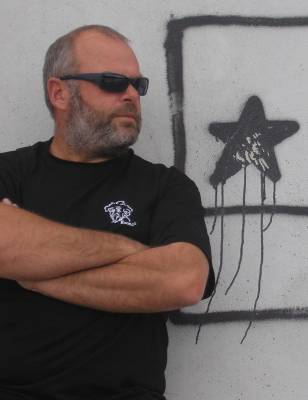
KAY CERA CERA by Fawa Conradie (South Africa)
Kay is a simple daughter of one of the thoroughbred farm labourers. She lives in Kay-world with her animals and her best friend is the farmer’s intellectually handicapped son, Anton. The two of them love Asjas, the farm donkey, who is somewhat out of place on this exclusive farm. The awkward threesome have a unique, strange bond; growing up through their teens living on the fringes of mainstream society, each for their own reasons. When Anton gets attacked by a swarm of bees, a string of events lead to the routine on the farm changing forever. Not only does Kay bring about social change, but she stimulates a much-needed examination on how farmers approach their workers. Life will never be the same again and no-one can guess what the future holds, but as Mrs Smit says: “Que Sera Sera . . .”
Having spent his first five years in Zambia (Northern Rhodesia), Fawa Conradie moved to South Africa with his parents where he matriculated at Grey College in Bloemfontein in 1975. He established his own company in digital animation, editing and special effects but sold the company and in 2002 and moved to the Garden Route to raise his young family while renovating old buildings, designing, teaching and making art. Fawa started writing and illustrating children’s and youth stories and has since been published in various collections of short stories and poems for South African schools. He also writes a regular column for a glossy magazine, South: Life in the Garden Route. Fawa is heavily involved in the arts; he paints and writes full time. He is also an active sportsman and has a collection of bonsai trees.
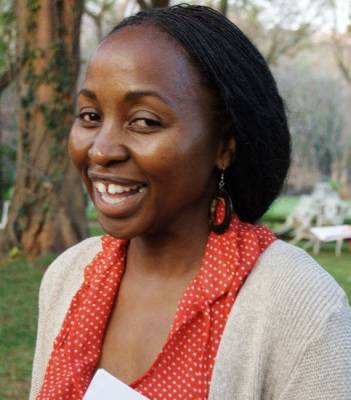
SEVEN by Sabina Mutangadura (Zimbabwe)
When Simi is uprooted from Victoria Falls to live in a run-down mining town far away, she is crushed. Having left her best friend, the Immaculate Emma behind, she finds that new pals are hard to come by especially if you are different. Just before her seventh birthday, she makes a decision which leads her to uncover a secret that affects everyone living at the mine. Before she knows it, Simi finds her life in grave danger with no one to help. That is, until an unlikely friend comes to her rescue.
Sabina Mutangadura is a Zimbabwean writer whose work includes stories for children and young adults. Sabina studied journalism at Rhodes University before working for a while in public relations. She subsequently gained experience in other areas within the field of communication as well as advertising and film. Sabina lives in Harare with her husband and daughter.

CHRISTMAS IN KEMAH’S HOME TOWN by Uchenna Edith-Susan (Nigeria)
Kemah’s ninth birthday on Christmas day is the most exciting ceremony of her life. Her quest to become a great dancer and make her mother proud propels her to discover her unique dancing skills which lead her to greater surprises. She is determined to conquer the challenges of an exciting talent hunt and emerge into a life of fame and great adventures….
Uchenna Edith-Susan is a graduate of Microbiology and a freelance writer. Her greatest passion is to inspire and empower the African mind through her writing and she is currently working on her biggest project to date, several chapter books for children as well as contributing articles to her favourite websites and blog posts. Uchenna loves reading books and browsing on the internet.
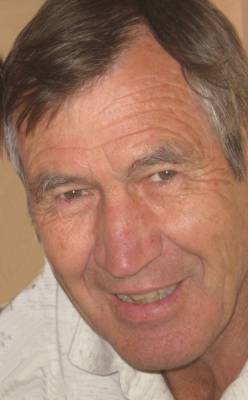
RHINO by Richard Street (South Africa)
Makena is the son of a game ranger. One day he overhears two rhino poachers planning to kill a rhino for its horn. He tells his friend, Tafari, a tracker who has the gift of being able to talk to animals. The two boys decide to stop the poachers. Makena with the help of Tafari and his animal friends, finds the poachers and they take their jeep. At first their plan does not go too well and they are nearly shot. A hole in the jeep’s petrol tank makes things worse but Tafari has more clever ideas. Just when it looks like they might be killed, the rhino appears.
Richard Street is a retired Junior School teacher, happily married with four adult children and four grandchildren. During his teaching career he wrote and produced many plays and musicals for the schools at which he taught. Since retiring, he has pursued his interest in writing for children. Having spent many years in the senior primary phase he finds it easy to identify with children and their concerns and interests. His many interests include playing the harmonica, photography, water-colour painting and video editing. He is an avid nature lover and passionate about conservation so when not writing or spending time with his family, he is happiest hiking or spending time outdoors.
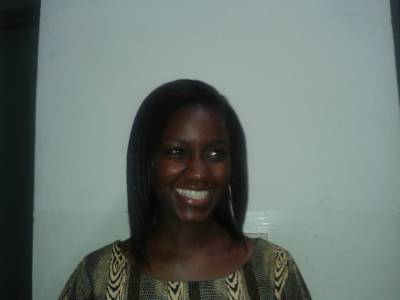
KWAME GETS A JOB by Sedem Abla Agbolosu (Ghana)
Kwame gets a job is a story about a crafty young boy who tries to avoid chores by hiding out in town. He ends up hiding in Mr. Koomson’s electrical store and before long, Kwame actually finds himself working! Does Kwame find yet another way to avoid work or does he lay down his bag of tricks and decide to find out exactly what hard work means?
Sedem Agbolosu is a twenty two year final year student of the University of Ghana, Legon, studying English and Archaeology. She resides with her family in Accra, Ghana. She enjoys reading and writing short stories and poetry and also tutors young children.
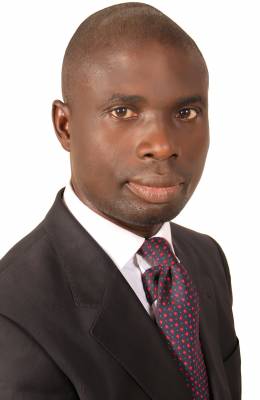
IN THE END by Tunji Ajibade (Nigeria)
This is a story about a young and physically-challenged school boy who dreams of becoming a politician. He begins by being fully involved in school politics. He looks up to politicians who are highly placed, but in the end he sees angles to them that he least expects, and as shocking as is revealing; he has a task to settle all of this in his mind, as well as channel a course for the realization of his dream.
'Tunji Ajibade is a Communications (Writing/Editing) Consultant, Literary Administrator and newspaper columnist. He lives in Abuja, Nigeria. He has published short stories, dramas and children stories – many of which have either won, or are nominated for awards. His short stories are published in Chamberfour, The Fear of Monkeys and a host of other online sites. He also has several collections of short stories ready for publication and is working on a novel. His first love is mentoring a new generation of writers.
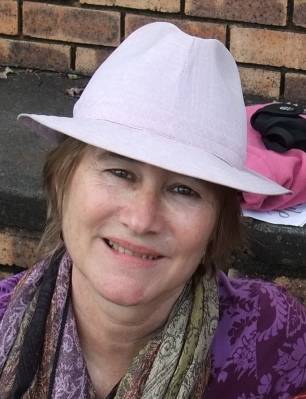
WHAT’S GOING ON AT 179 JABULANI STREET? by Karen Hurt (South Africa)
Jama’s life is upside down and going down further until he reluctantly accepts the pink jacket his father insists on buying him from a secondhand clothes seller on a freezing evening in Hillbrow, Johannesburg. He finds keys and an address in Yeoville in the pockets. This is the beginning of a dangerous adventure that leads to a new friendship with a girl called Sophie who Jama discovers the jacket had belonged to. Parting with the truth when it comes to telling their parents what they are up to, Jama and Sophie discover a Mozambican craftsman at 179 Jabulani Street who has been trapped in the rhino horn trade by a fierce poacher. They come up with a plan to help him escape and get the syndicate bust. Along the way they make partners with and inherit a dog they rename Licks.
Karen Hurt is an independent writer, editor, materials developer and writing workshops facilitator. She was born in Zambia where she spent her early childhood before moving to South Africa. She lives in Johannesburg. Whenever Karen can carve out the time, she loves to slip into her ‘other world’ and write fiction.

MADAM’S MAID by Ayibu Makolo (Nigeria)
Madam's Maid tells the story of a young girl, Acharu, whose father died and left the family in penury. The family suffers a lot and at the end Acharu is sent off to be a maid with a family in a big city.
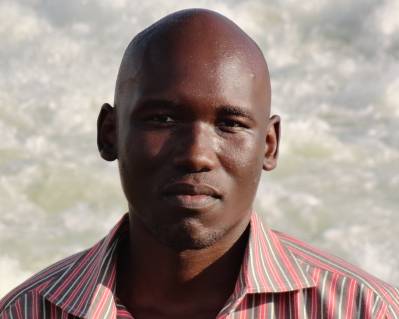
OF GHOSTS AND GRAVE-ROBBERS by Derek Lubangakene (Uganda)
Of Ghosts & Grave-robbers is a story about a boy, Ethan, who stops speaking when his sister, Ethele dies and only resumes when he receives a mysterious letter from her, postmarked: Heaven. The two siblings then start communicating regularly. Problem is, Ethan still misses her so much that he decides he wants to be a ghost so that he can be nearer to her. But because no one around him knows how to become a ghost, Ethan resorts to going to a cemetery at night to try and ask an actual ghost how to become a ghost, but he instead runs into a girl, Thalia and her dog, Boris, and together the three of them stop two grave-robbers from getting their filthy paws on two precious coins.
Although Derek Lubangakene trained as a Purchasing officer, his passion is writing. He is currently working on his second fantasy book but he also writes poetry, and has been published in The Proposal, an anthology Black Rainbow Poetry. His poetry has also been published in the Kalahari Review and his poem, Jailor, was selected as one of the top 5 poems of the month of July 2013, for The Missing Slate.
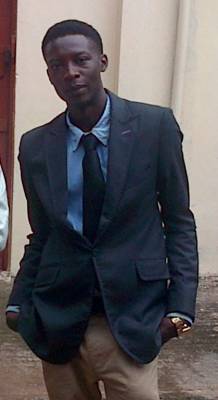
GRANDMA’S HENS by Olurunfunmi Temitope (Nigeria)
Grandma is a typical traditional African woman and mother who would go to any length to protect her family. This does not sit well with her eldest son, Sanmi, who holds a grudge against his mother’s protective hens for costing him the opportunity of becoming a reverend father. When he reluctantly acquiesces to go to the village to join the family for Funke’s wedding, and his cheeky first daughter, Bimbo, comes to the village on holiday from the university, it seems all might end well or possibly not.
Olorunfunmi Temitope was born in Lagos, Nigeria. He is a graduate of Fine Arts (Art History.) from Ahmadu Bello University, Zaria. He is the Lagos Liaison Officer of Life in My City Arts Festival. He writes poetry, short-stories and is presently working on his debut novel. His short story Our Dreams Have Gone Out was one of the highly commended short-stories in the Sentinel Nigeria All-Africa Short Story Competition 2013. He has had his writings on www.writing.com and www.linesfromafrica.com.
Longlist for the Rising Writer Prize
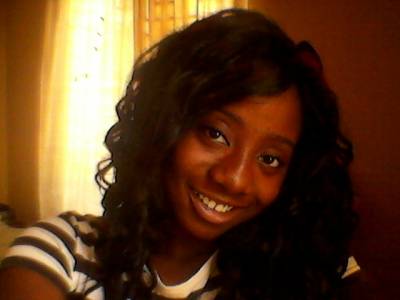
SONGS OF THE GODS by Jennifer Sarfo (Ghana)
Adu is a young boy who’s had nothing but loneliness and silence to play with since infancy. As a teenager, his dream is to associate with the other children in the village but the harder he tries to befriend them, the further they draw from him. One sacred day, Adu is ordered by his mother to go and fetch firewood. Little does he know that this little journey would change his life forever.
Jennifer Sarfo was born in Kumasi. She is a former student of International Community School where she had her A level education. Jennifer is from Akyawkrom in the Ejisu Duaben district. She comes from a family of six who all live in Ayeduase in Kumasi.
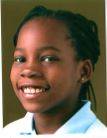
PIECES OF AFRICA by Kanengo Diallo (Tanzania)
“Pieces of Africa” is a story about four children who are from different parts of Africa with diverse backgrounds. They are chosen to find all the magical puzzle pieces scattered around Africa in order to save the world. They were chosen because they all came from a long lineage of puzzle finders that started since the beginning of time. In trying to find the pieces, all their ancestors failed and died. Now it was up to them to gather all the pieces within a set period of time or else they, and the whole world will perish.
Kanengo Rebecca Diallo was born in 2001 in the city of Dar-Es-Salam, Tanzania. She lives with her mother, Nuru, her father, Anthony, and her two siblings. Since she was eight years old, Kanengo’s dream has been to become a world renowned author of books and if lucky, best-selling books. Kanengo discovered that she has a unique talent of drawing manga or anime comics. Usually when she writes her stories, she turns them into anime cartoon drawings.
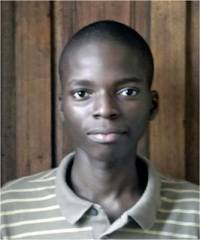
THE LITTLE SECRET by Fego Martins Ahia (Nigeria)
Kamila is from a beautiful town called Kenema and she sees the world with small brown eyes. One day she meets Pa Camara, a friend of her father’s who talks to cats, and he offers to take her on his journey to search for a cat named Anis.
Fego Martins Ahia was born in Lagos, Nigeria in mid-1995. He was shortlisted twice for the Litro/IGGY International Short Story Award, received a bronze essay award from the Royal Commonwealth Society as well as won the inaugural Ugreen Foundation Short Story Prize.
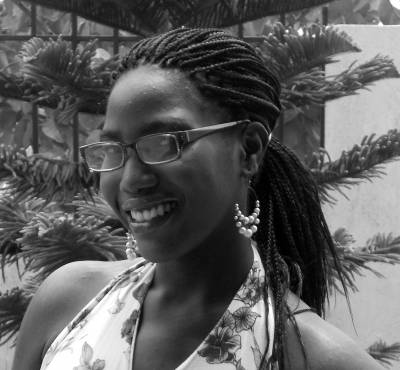
THE BUSTING OF THE GREEDY GANGSTER by Asantewa Owusu-Darko (Ghana)
Agents, Kojo and Maya of the Kiddie Secret Service Agency{KSSA} have been assigned a very difficult task. They must save the Governor before he falls into the clutches of a band of greedy gangsters who are bent on taking control of the oil concessions that have been discovered in the state. Teaming up with them is the Governor’s twins, Nana Aba and Nana Krampa. Will they be able to save the Governor from the hands of the greedy gangster Densu-Mantey? Or will these Gangsters with the aid of the KSSA mole Pius succeed in their devious plans?
Asantewa Owusu-Darko is a 16 year old former student of Achimota school. Asantewa recently received a scholarship to do a two year A level programme at the African Leadership Academy in South Africa. Writing has always been part of her life and she enjoys all genre of writing, from poetry to fiction, songwriting and even blogging. She also hopes to venture into screenwriting someday . Asantewa believes in the power of writing as a tool for development and she aspires to be a media entrepreneur and one of the inspirational leaders who will take up the mantle to transform Africa .
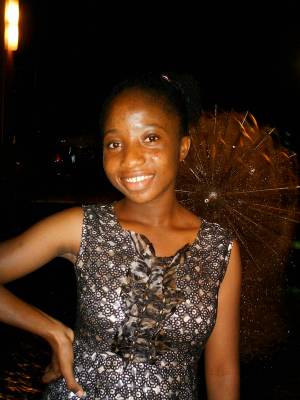
MAKING A WISH by Freda Sarfo (Ghana)
Ada, a young girl from a family of seven, finds herself at the forbidden cave after she lost her way home when there was heavy rainfall. After meeting the decision stone and know-it-all- rabbit, she finds out about the secret that the cave holds. The magic mirror has reappeared and she has to embark on a journey with the advising tortoise. She is handed the responsibility of either wishing for the good of the town or wishing for her sister to be found. She passes the test of selflessness and is to become the guardian of the cave.
Freda Sarfo was born in Kumasi, Ghana. She is a former student of International Community School where she completed her A level education. Freda lives in Ayeduase, Kumasi, with her family. She uses her spare time to learn leadership skills and take part in community service.
